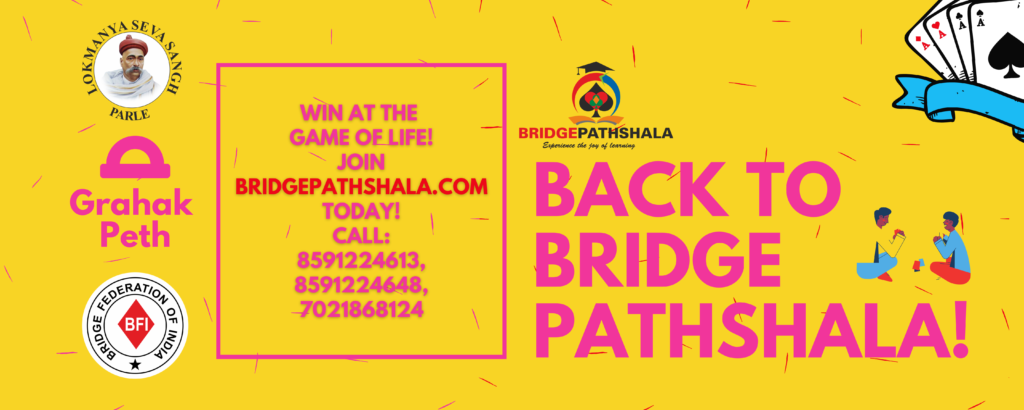Prabha was not looking well, and everyone enquired if she was OK. She muttered, “I am having a headache. I attended a seminar on artificial intelligence, and it was full of so many complicated terms that I could not follow anything. Maybe it was too advanced for me”. This comment led to a discussion on how teaching is an art of making complex things simple rather than the other way around. All complex topics can be broken down into small parts and made simple for newcomers to digest.
Kaushik then moved the discussion to Bridge. He knew the answer to the question but wanted to have a discussion before stating his conclusion. “Should we be playing complex memory taxing systems or keep it simple and follow some basic tools and guidelines”. Prabha, despite her headache was first to respond saying, “It is all a state of the mind. If you try to memorize systems without understanding the underlying logic of the purpose of the gadget or tool, it will be complex. Once you have understood the logic, even complex bidding systems become simple.”
Padma was in a very pensive mood. She always spoke after a lot of thought and said, “Prabha has made a very pertinent point. In addition to simplifying complex systems, we need to first decide if it is required or not. Some of the systems are used where the frequency of occurrence is very low and when it does occur, one of the partners or both would have forgotten the system. Before simplification, we should question the need.”
Kingo, who always believed in the principle of KISS (Keeping it Simple and Stupid) added, “I am all for keeping things simple and avoiding complex bidding tools which leads to mental stress at the bridge table. The focus shifts from focusing on the game to remembering the system which is not desirable. By keeping gadgets to the minimum, focus is not lost.”
Kaushik was ready with his conclusion even before the discussion was complete. “We cannot have a bidding system without some basic tools and gadgets. They are essential to describe hand patterns and strength. The key is to analyse frequency of occurrence and if it occurs once in 25 deals, it is worth considering. However, one should never memorize a system – understanding the logic does not put stress on you at the bridge table. If you understand the logic, then it is not memory taxing at all. Having said all that, it must be noted that nothing can replace common sense and judgement. This is the key to success.”
Tailpiece:
When we are trained to get the ball or the newspaper, it looked complex at the start, muttered Goofy. Now, it is very easy and simple. We never do anything which is not simple added Goofy.

